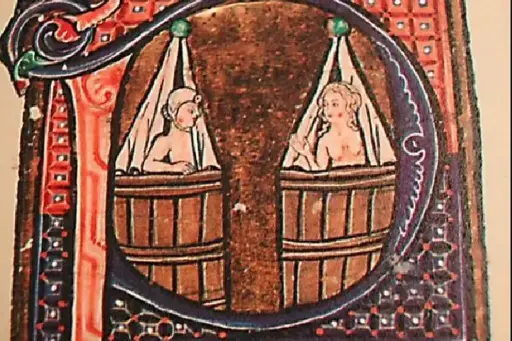Also, many peasants didn’t even use bath houses they bathed in their home with more effort by heating up basins of water.
But excessive bathing wasn’t really talking about bathing but going to public bath houses to meet and to … other people.
If you read the article/post, it goes on to say that in later centuries, some medical professionals misinformed the public telling them not to bathe with warm water because the ‘pores would open and let too much bacteria etc in.’ I am thankful they eventually reconsidered.



Makes sense that Europeans inherited the Roman custom of bathing. There’s a brief mention that the Romans didn’t use soap. They did have soap, but most people thought water loosened the grime, and they scraped themselves with an implement called a “stringel” - which is where our word “astringent” comes from.
Strigil, but yeah. Honestly, I’m not sure why we don’t still use something similar commonly. I just looked it up, and there a few tools to perform the same task, but not many and it isn’t common. Sure, you can use a luffa or something for exfoliating, but they can breed bacteria and need to be replaced. A blade is reliable, functional, clean, and infinitely reusable. It seems like something that should be making a comeback, especially since most luffas are artificial and made of plastic.
Pumice is a contender